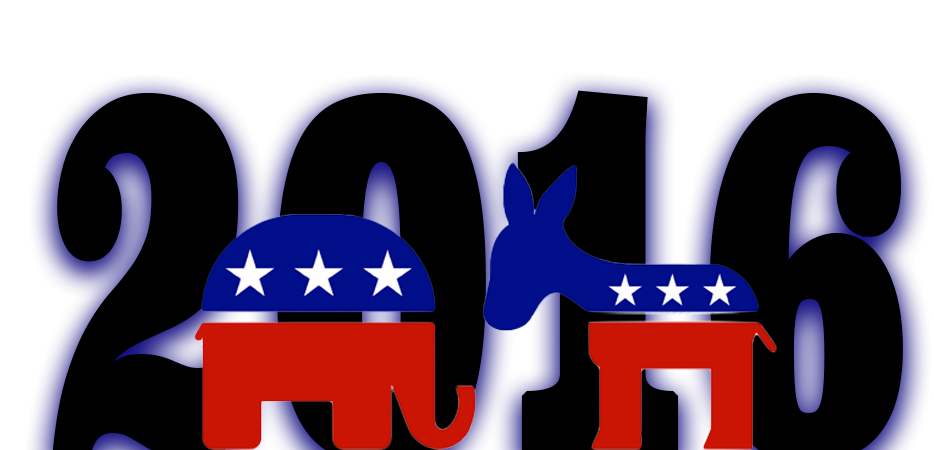With just over a year until the 2016 presidential election, it is time for college-aged students to start thinking about casting their vote.
For those who were not eligible to vote in the 2012 election, this upcoming election will be their first time having a say in who will be the next president of the United States.
Many students at Cabrini will finally have the chance to vote in 2016. While some students are completely confident they will be voting, others have some hesitations.
Not feeling educated enough in politics and believing that their votes do not matter are common themes for why young college-aged students believe they that will not be voting in 2016.
Josh Rauch, junior chemistry major, has already made the decision not to vote in the 2016 election.
“I don’t believe I am politically informed enough,” Rauch said. “However, I will vote in future presidential elections when I feel I can give a more educated vote.”
Feeling overwhelmed by voting and all of the political information that is out there is quite normal, especially for those who have not had as much exposure to politics.
However, there is one thing that many young college-aged students have had a lot of exposure to and that is social media.
In an attempt to attract more voters, many candidates have taken to social media to spread their information and reach social media users better. The upcoming presidential election has already been referred to as the “social media election” and candidates from both parties have been using Facebook, Twitter and Instagram as campaign tactics more than ever before.
Not all students here at Cabrini are hesitant about voting. In fact, some are completely positive that they will be casting their vote next November.
Kristen Murphy, sophomore psychology major, is a first-time voter and will definitely be voting in the 2016 election.
Murphy, who feels very passionate about politics, has being staying up-to-date on the news and trying to learn as much as she can about the candidates.
Murphy had some advice for her peers who may not be as interested in voting as she is.
“If you are voting for the first time and feel like you don’t know a lot about politics, watching the news can really help,” Murphy said. “Social media can be biased sometimes, so just make sure to not only use social media to form your political opinions. People our age should start learning about the election and be as educated as they can about politics.”
Junior Rory Early felt similarly to Murphy and will also be voting for the first time in the 2016 election. He has already started researching some of the candidates to make sure his vote will be an educated one.
“Once the election gets closer and there are fewer candidates, I will do my research via news sources,” Early said. “I want to find out where they get their funding’s from and also pay close attention to their interactions with people. I want to know who the candidates are as people, not just politicians.”
Despite mixed emotions from students about voting for the first time, faculty members are positive students should get out there and vote next November.
Dr. Felicity Duncan, assistant communication professor, believes voting in the presidential election is a great first step for young people to get involved in the political process.
“The act of voting is quite simple and therefore it is in no way a threatening or scary introduction to politics,” Duncan said.
She also believes that voting young is a great way to build habits and confidence within the political process.
“Voting helps to get students into the habit of being civic participants. Hopefully as they build the habit of voting young, when they get older they will not be scared of politics and be encouraged to get more involved in some other ways,” Duncan said.
Duncan teaches several courses on social media here at Cabrini and also voiced her opinion on the role of social media in the upcoming election.
“Social media can be a great tool to get information out quickly. This is especially important for candidates trying to reach young voters,” Duncan said. “Young people are trying to make an informed decision and accessing and following candidates on social media platforms can be a really good way to see and understand better who they are as people and what they stand for, as well as what they’ll do once they are in office.”
Tim Pierce, assistant men’s and women’s swim coach at Cabrini, also believes young people should start paying attention now, even though it is early in the campaigns.
“Right now, the number of candidates may be overwhelming for young people who are voting for the first time. Using social media and watching or reading about the debates can be really helpful, especially this early on,” Pierce said.
Seniors who voted in 2012 also gave some insight that can be helpful for their younger peers.
Alexis Drew, senior exercise science major, is very involved in politics. Not only did she vote in 2012, but she also volunteered on the 2008 Obama campaign and made phone calls encouraging people to vote.
Drew says her vote in 2012 had no influence from social media. In fact, Drew makes an effort to stay off of social media when it comes to politics.
“During election time, I actually stay off of social media because things that are said are often blown out of proportion and peoples words can be twisted,” Drew said.
Whether using social media or watching the debates to form political opinions, the most important thing for college-aged students to remember is that every vote counts.


